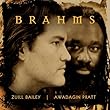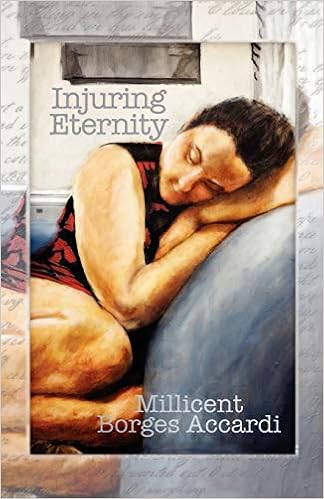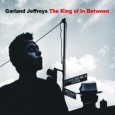 This book is brutal and unforgiving. The author is not afraid to graphically depict the consequences of violence, he is not afraid to introduce you to a lovable character and kill them off later in the story, and he is not afraid to let the characters become increasingly unhinged and desperate. He uses gritty dialogue, gritty events and gritty locations to depict a world in the throes of the greatest change it has ever seen. And all these things are just right for a story such as this one.
This book is brutal and unforgiving. The author is not afraid to graphically depict the consequences of violence, he is not afraid to introduce you to a lovable character and kill them off later in the story, and he is not afraid to let the characters become increasingly unhinged and desperate. He uses gritty dialogue, gritty events and gritty locations to depict a world in the throes of the greatest change it has ever seen. And all these things are just right for a story such as this one.
Author:
African Griots of Joy: Mamadou Diabate and his Courage; and the Owiny Sigoma Band, featuring Joseph Nyamungu
 Instrumental music can be beautiful, have meaning, and bring joy. In Mamadou Diabate’s “Humanity,” written out of concern for the troubles of the world, there is drama, though no words are used. The tones are drawn out, and the great weights of the notes achieve emphasis and suspense.
Instrumental music can be beautiful, have meaning, and bring joy. In Mamadou Diabate’s “Humanity,” written out of concern for the troubles of the world, there is drama, though no words are used. The tones are drawn out, and the great weights of the notes achieve emphasis and suspense.
Weird Enough to be Symbolic: The album 100 Lovers by DeVotchKa
 It is easy to be lost in the world and lost to it—brilliance and love can move one beyond easy paths, as can ignorance or hate, but art provides a map, a beacon. It can be a shock to youth to realize that some people do not care if the maps exist—or worse, enjoy shooting out the lights. It can be a shock to the old too. Those who care about a certain kind of civilization must be vigilant.
It is easy to be lost in the world and lost to it—brilliance and love can move one beyond easy paths, as can ignorance or hate, but art provides a map, a beacon. It can be a shock to youth to realize that some people do not care if the maps exist—or worse, enjoy shooting out the lights. It can be a shock to the old too. Those who care about a certain kind of civilization must be vigilant.
Permanent Culture: Zuill Bailey and Awadagin Pratt, Brahms Works for Cello and Piano
 Zuill Bailey studied at the Peabody Conservatory and Juilliard; and early in his career Bailey was a featured participant in the American premiere of Miklos Theodorakis’ “Rhapsody for Cello and Orchestra” and Bailey performed Beethoven’s cello sonatas at the Metropolitan Museum of Art. Zuill Bailey, known for both his charismatic personality and expert technique, has performed at Carnegie Hall, Alice Tully Hall, and the Kennedy Center, and with symphony orchestras in Chicago, San Francisco, and other American cities, as well as abroad—including in China, England, France, Israel, Jordan, Russia, and Spain.
Zuill Bailey studied at the Peabody Conservatory and Juilliard; and early in his career Bailey was a featured participant in the American premiere of Miklos Theodorakis’ “Rhapsody for Cello and Orchestra” and Bailey performed Beethoven’s cello sonatas at the Metropolitan Museum of Art. Zuill Bailey, known for both his charismatic personality and expert technique, has performed at Carnegie Hall, Alice Tully Hall, and the Kennedy Center, and with symphony orchestras in Chicago, San Francisco, and other American cities, as well as abroad—including in China, England, France, Israel, Jordan, Russia, and Spain.
A Light Left On: Imprint by the Julia Hulsmann Trio
 It is not hard to imagine the atmosphere in a room, a conversation, in “A Light Left On.” I find myself asking whether artists invest significant warmth in music as it is often lacking, when it matters, in the world.
It is not hard to imagine the atmosphere in a room, a conversation, in “A Light Left On.” I find myself asking whether artists invest significant warmth in music as it is often lacking, when it matters, in the world.
A review of Injuring Eternity by Millicent Borges Accardi
 This is an unusual collection of insightful moments, people, relationships and life throughout the day into evening. Many will find something of value just by randomly opening the pages and selecting something new, including births, deaths, lovers, children, snooping, guns, the down side of Las Vegas, soap operas and birthdays.
This is an unusual collection of insightful moments, people, relationships and life throughout the day into evening. Many will find something of value just by randomly opening the pages and selecting something new, including births, deaths, lovers, children, snooping, guns, the down side of Las Vegas, soap operas and birthdays.
A review of How We Got Barb Back: The Story of My Sister’s Reawakening After 30 Years of Schizophrenia by Margaret Hawkins
 The quiet joy that Margaret takes in rediscovering her sister is inspirational. What we find at the end is not the old Barb, but rather, Barb as she is and has become. How We Got Barb Back is an important book, not just for those looking for answers and understanding about a relative struggling with mental illness, but for everyone.
The quiet joy that Margaret takes in rediscovering her sister is inspirational. What we find at the end is not the old Barb, but rather, Barb as she is and has become. How We Got Barb Back is an important book, not just for those looking for answers and understanding about a relative struggling with mental illness, but for everyone.
A review of The Complete Guide to Self-Publishing, fifth edition by Marilyn Ross and Sue Collier
 If you are serious about going the whole hog and self-publishing one, or many books, then you are going to become a publisher and trying to do it without this guide could be a big mistake. The Complete Guide to Self-Publishing is one of the most seminal, practical and valuable books on the topic on the market and it belongs on every self-publisher’s shelf.
If you are serious about going the whole hog and self-publishing one, or many books, then you are going to become a publisher and trying to do it without this guide could be a big mistake. The Complete Guide to Self-Publishing is one of the most seminal, practical and valuable books on the topic on the market and it belongs on every self-publisher’s shelf.
Life was Bent, and I was Twisted: The King of In Between by Garland Jeffreys
 It is very liberating to hear someone say something that sounds tough and wise; and in “Til John Lee Hooker Calls Me,” a blues-rock rave-up with intense singing, Jeffrey celebrates the musical heroes who have come and gone, such as James Brown, Fats Domino, Bo Diddley, Sinatra, Nat Cole, and John Lee Hooker.
It is very liberating to hear someone say something that sounds tough and wise; and in “Til John Lee Hooker Calls Me,” a blues-rock rave-up with intense singing, Jeffrey celebrates the musical heroes who have come and gone, such as James Brown, Fats Domino, Bo Diddley, Sinatra, Nat Cole, and John Lee Hooker.
A review of String Bridge by Jessica Bell
 Above all, this is a novel about music. Music drives the plot as Melody’s desire for music becomes the motivating catalyst for change in her life. Her guitar and voice underpin the narrative in all sorts of ways, from the songs that open each chapter, to the lullabyes Melody sings for her daughter to the musical career she attempts to resurrect.
Above all, this is a novel about music. Music drives the plot as Melody’s desire for music becomes the motivating catalyst for change in her life. Her guitar and voice underpin the narrative in all sorts of ways, from the songs that open each chapter, to the lullabyes Melody sings for her daughter to the musical career she attempts to resurrect.